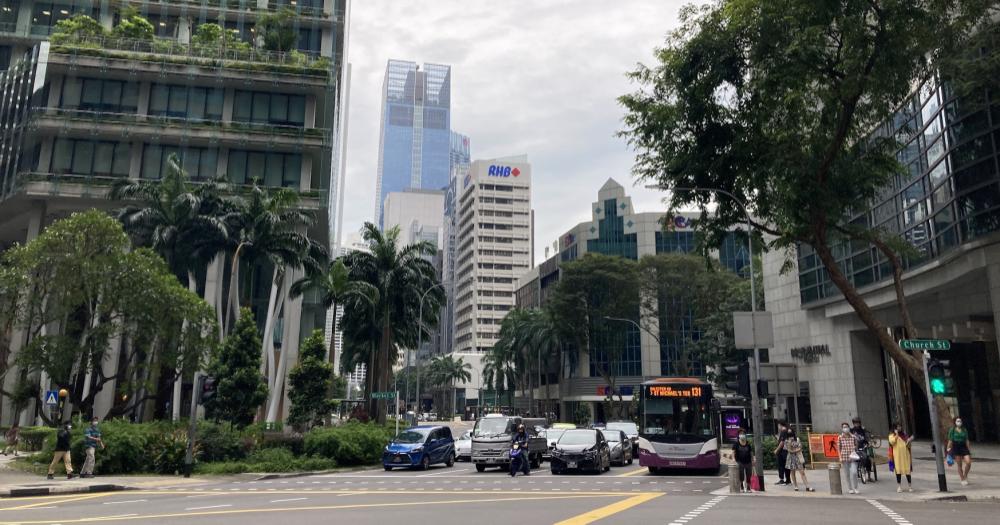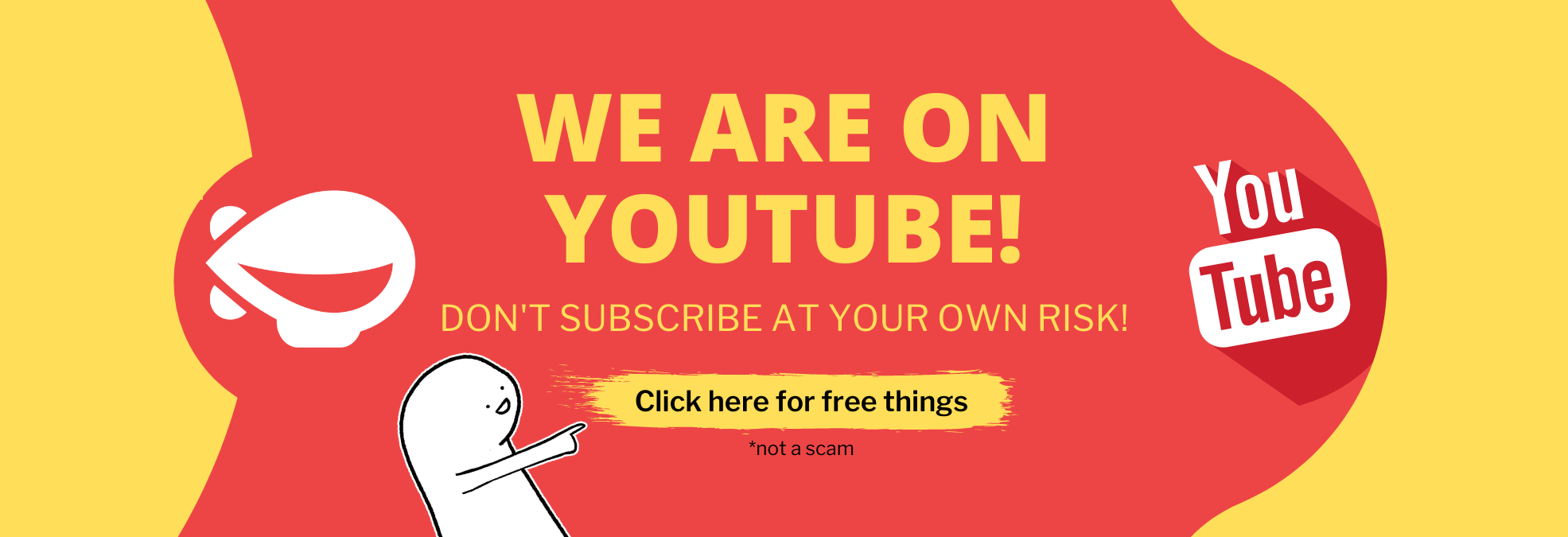Follow us on Telegram for the latest updates: https://t.me/mothershipsg
It's a somewhat-established fact that time does fly when we're having fun — among psychologists, at least.
Various studies have been done over the years to find out how our enjoyment of activities affects our perception of time and its passage.
The overall consensus seems to be that when the human brain is occupied with something enjoyable — for example, a game, or a TV show — the activity tends to dominate the person's attention.
This means we pay less attention to the passage of time, and therefore, time appears to move more quickly.
Conversely, anyone who has been left stumped by an exam, or bored in a classroom/lecture would know the feeling of having the remaining time stretch out like an eternity.
So "time flies when we're having fun" is not just a colloquial expression; it in fact describes part of our reality.
Did we have "fun" in 2020 and 2021?
Looking back on 2020 and 2021, the past two "pandemic years", "fun" is probably not what immediately comes to mind for most people in Singapore, however.
For many, these would have been years marked by hardship and difficulty, no thanks to grim economic prospects, business closures, and retrenchments.
Even those whose careers and livelihoods remained relatively on track would have felt the impact of far-reaching and at times confusing public health policies, which felt like they were ever-changing and/or never-ending at various points in time.
Work-from-home, liberating as it could be, took its toll as well, blurring the lines between work and play, and for some, inspiring revenge bedtime procrastination-induced burnout.
And with travel restrictions largely in place for most of the past two years, Singaporeans were left without their usual means of escape, with heavily-subsidised local attractions a scant consolation.
With all this doom and gloom, shouldn't the past two years have stretched on forever?
Yes, there were certain periods where time may have seemed to stretch on — such as Phase 2 (Heightened Alert), where you could only legally meet one other person, and dining out was off-limits.
If those specific periods seemed long, it could be due to the opposite of fun: Boredom.
Boredom, according to scientists, makes time seem to pass more slowly because our minds are able to devote more attention to the passage of time.
Zooming out and looking back on the past year or two, however, there is still a common sentiment that 2020 and 2021 went by relatively quickly.
So what's the deal with time flying by for the past two years?
And more importantly, what can be done to keep 2022 from being the third year that simply slips away, seemingly in the blink of an eye?
Here are two possible reasons, and suggestions to counter their impact.
1. Too much information
One simple explanation could be that we are over-stimulated with too much information, distorting our sense of time.
Just take the limits on gatherings, for one. Social gathering limits were first imposed in 2020 and changed multiple times through 2021. This called for extra attention when planning any kind of activity, social or otherwise, as to whether the number of people involved was within the permitted number. And if the activity involved eating or drinking, one would have needed to ensure that the group involved would be allowed to dine in.
Not to mention that if restrictions changed, we would have had to replan our activities all over again — for the sake of adhering to the rules and curbing Covid-19's spread of course, but definitely calling for significant attention.
There was also a huge amount of new information that we needed to take in and process, in order to make decisions like whether/when we should get vaccinated, whether/when we should get booster jabs, and which vaccine we should opt for.
In other words, our brains could be too preoccupied with the quickly-changing pandemic situation to really notice the passage of time.
This affects our perception of time in the same way as when we are engaged in an enjoyable activity, and makes us feel that time is flying by.
What can we do about overstimulation?
A lot of what causes overstimulation can be out of our control, such as public health measures.
But we can adjust some things, such as the way we process new information in 2022, which will go some way in preventing overload.
- Be more selective about sources of information. While it can be tempting to follow multiple news outlets and information sources, you may wish to streamline things and prioritise your favourites (We'd of course hope that Mothership is one).
- Block out news and/or social media once in a while. If something really important happened, you'd find out somehow, through other means. And going offline once in a while is good for mental health too — even if you can only afford to do so for a few days or hours.
- Know when to move on from outdated or incorrect information. Your phone gets regular software updates so it can run more smoothly. You should too, by letting go of information or questions about things that have long passed and don't affect our lives too much.
We can also find some comfort in the fact that Covid-19 restrictions in 2022 will probably be less volatile than they were in 2020 and 2021.
While there are still changes from time to time, such as a recent enhancement of the current Protocols 1-2-3, these tweaks are in line with the overall direction since Singapore began moving towards home recovery in Aug. 2021.
Fingers crossed that things remain stable — at least as far as Covid-19 restrictions and protocols are concerned.
2. A lack of meaningful milestones
A lack of milestones in the past two years may also contribute to the feeling that time passed in a flash.
Things like getting engaged, graduating, moving house, or travelling to a place for the first time, could be milestones in our lives.
But some of these things may have taken a backseat amid the Covid-19 pandemic; weddings and holidays had to be postponed or even cancelled due to sudden restrictions.
In our work lives, milestones can take the form of significant events like changing jobs, getting promoted, and completing projects.
With dour economic prospects however, some of these work-related milestones could also have been put on hold.
From where we stand now, at the beginning of 2022, these milestones in each of our journeys through 2020 and 2021 may be missing altogether, or seem to be overshadowed by the pandemic.
Without these markers to tell us how far we've come, it may feel like we've not made much progress in the past two years.
After all, the literal meaning of the word "milestone" comes from actual stones along highways that told travellers how far they were from cities or locations.
 A milestone located near Stonehenge. Photo by Steven Brown on Unsplash.
A milestone located near Stonehenge. Photo by Steven Brown on Unsplash.
Without milestones, it's that much harder to have an accurate sense of where we stand, both literally and figuratively.
Time already flies by faster each year even before Covid
As it is, in a "normal" year without Covid-19, we would already feel that each year passes more quickly than the ones before.
Some may reason that this is due to each consecutive year being a smaller proportion of our lives thus far.
But this is a phenomenon that has been explained by neuroscience: Our brains encode new experiences into memory, while familiar ones tend to be left out.
As most of us tend to have more novel experiences (like graduations, acquiring a driver's license, ORD-ing, going on a solo trip overseas, etc.) at younger ages, we have relatively more memories of those younger years. This means that we experience time passing more quickly over the years, as we don't have as many memorable experiences to look back on with each passing year.
How would this play out amid Covid-19?
Novel experiences worth remembering (like graduating, getting married, travelling somewhere new) were likely disrupted or postponed by Covid-19, making our planned milestones that much harder to achieve in these past two years.
Needless to say, those who have a habit of marking the years by the memorable overseas trips that they take would have had a hard time doing so in 2020 and 2021.
How can we make sure we have 2022 milestones?
To ensure that we have significant moments or new experiences to look back on at the end of 2022, we'll have to make them happen.
Even if you're not the sort of person to make new year resolutions, having some plans for the year ahead can help to prevent it from zooming past before you know it.
While not everyone can plan to graduate, or get married, something is better than nothing; learning a new skill, picking up a sport or hobby, or even exploring a side of Singapore you've not visited before.
You might complain that there's nothing to do in Singapore, but have you seen Yew Tee? I would mention a few highlights, but I wouldn't want to spoil it for you.
If you like what you read, follow us on Facebook, Instagram, Twitter and Telegram to get the latest updates.

